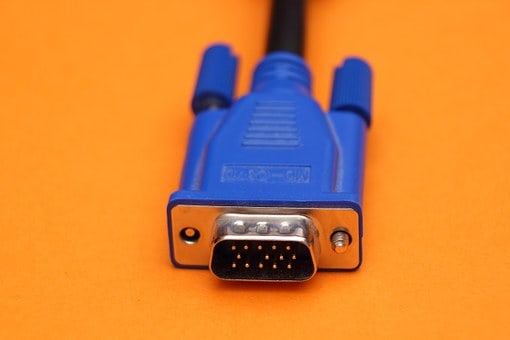This question comes up a lot (most commonly for gamers) of whether or not a 1080p laptop can output 4k to another device. In this post, we’re going to discuss what all this actually means and help you determine whether or not your laptop can output 4k.
Can My Laptop Output 4k?
The resolution of an external display depends on that display and the graphic card of the laptop. An NVIDIA 600 series and up with the help of either an HDMI cable or DisplayPort; AMD Radeon 79xx/78xx/77xx series and higher, R7 or R9 270 or higher will be sufficient enough.
Other specifications can be found below.
4K resolution screens or 4k laptop are a hot topic right now. For those of you who don’t know, 4K refers to the amount of pixels your screen, whether a laptop, monitor, or TV can display. Most screens offer 1080p which means that you are viewing a horizontal range of 1080 pixels.
A 4k screen offers 4 times (horizontal 4096) the pixel viewing area. Many modern monitors and TVs are offering a 4k or Ultra HD resolution. For gamers, this is the peak of resolution viewing experience and most modern AAA titles look phenomenal in 4k.
For the laptop gamers of the world, you may be wondering if and/or how your laptop can output to one of these glorious 4k screens, often asking, “Can my 1080p laptop output to 4K?”
If you are in the market for a good 4k laptop, these are the ones we like best:
- HP Spectre x360 – Touch screen laptop
- Dell XPS 15 7590 – InfinityEdge display
- ASUS ZenBook 15 – Amazon Alexa Compatible
- HP Envy 13 – Portable Touchscreen
- Razer Blade Stealth 13 – High-end Gaming
- ASUS ZenBook 15 – Amazon Alexa Compatible
- Asus ZenBook Pro Duo – High-end Gaming
- MSI P65 Creator – 8K video
- MSI Prestige 15– Ultra Thin and Portable
- Razer Blade Pro 17 – 17-inch 4K display
- Lenovo Yoga 720 – Budget 4K
Can A 1080p Laptop Output 4k?
The first thing you should know is that your base screen resolution (i.e. your laptop’s screen resolution, 1080p, 720, etc.) has nothing/zip/nada/zilch to do with whether or not you can output 4k.
When you connect to your laptop to a 4k screen, your laptop screen comes completely out of the picture (pun absolutely intended). You are now gaming/viewing on a 4K screen and what matters most in this case, is your hardware.
Think about it this way: if you were wanting to buy a laptop with a 4k screen, what pieces of hardware would you need to power that 4k screen? A good graphics card, of course; a decent processor; a heck of a lot of RAM.
Basically, all the things that make the laptop go. These are the same things we want to look at when we are determining whether or not your laptop can output 4k.
How To Check If My Laptop Supports 4k Monitor?
..The most important piece of hardware for outputting 4k is your graphics card..
The most important piece of hardware for outputting 4k is your graphics card so you’ll need to know what kind you have before we can begin.
If you don’t know your laptop’s specs off the top of your head, just run dxdiag.exe (for Windows). Do this by typing ‘dxdiag’ into the Windows search bar, just to the right of the ‘Start’ button. Then click ‘Run command’. Select ‘Yes’ if you’re prompted to check your drivers for digital signatures.
Once into dxdiag, by default you’ll see the ‘System’ tab that shows you all of your laptop’s system’s specs. Navigate to the Display tab. You may have two if you have a dedicated graphics card, in which case, navigate to ‘Display 2’.
Now, you will be shown the specs of your graphics card. We just need the name of your graphics card, so write that down. With this you’ll be able to check your graphics card against the list of supported 4k graphics cards.
But if you just want to purchase a 4k laptop, then go with one of these:
- HP Spectre x360 – Touch screen laptop
- Dell XPS 15 7590 – InfinityEdge display
- ASUS ZenBook 15 – Amazon Alexa Compatible
- HP Envy 13 – Portable Touchscreen
- Razer Blade Stealth 13 – High-end Gaming
- ASUS ZenBook 15 – Amazon Alexa Compatible
- Asus ZenBook Pro Duo – High-end Gaming
- MSI P65 Creator – 8K video
- MSI Prestige 15– Ultra Thin and Portable
- Razer Blade Pro 17 – 17-inch 4K display
- Lenovo Yoga 720 – Budget 4K
Can my graphics card output 4K?
NVIDIA 600 series and up: Yes, you can output 4k with the help of either an HDMI cable or DisplayPort.
AMD Radeon 79xx/78xx/77xx series and higher, R7 or R9 270 or higher: Yes, you can output 4k with the help of an HDMI cable.
Intel UHD Graphics: Yes, with an HDMI cable.
Intel HD Graphics: No.
Most modern laptop graphics cards can output 4k; however, your gaming experience may change dramatically when outputting as opposed to using your laptop’s screen.
If you have a modern graphics card, you also probably have all the other hardware needed to run games and, by extension, output to 4K.
..If you graphics card is not on the list of supported 4K cards, you won’t be able to output 4k…
If you graphics card is not on the list of supported 4K cards, you won’t be able to output 4k. Period. Your graphics card simply cannot support it.
You may have the best processor on the market with all the RAM in the world but if you’re sporting an integrated Intel HD Graphics card, you won’t be able to output to 4K. Your laptop may crash or you will have abysmal frame rates if you try to run 4k on an unsupported card.
How do I connect my 4K screen?
The easiest way to do this is to connect your laptop to your 4k screen with an HDMI cable. But not just any HDMI cable will do. First, you will need a High Speed HDMI cable in order to output to a 4k device. There are several types of High Speed HDMI cables at your disposal.

HDMI 1.4: This cable can output 4k from your laptop no problem. They are tested to output at high quality 1080p to 4k so you’re in the clear if you have this sort of HDMI cable.
HDMI 2.0: This cable does everything the 1.4 does but offers a larger variety of colors to output to your 4k device.
HDMI 2.0a: This cable is enhanced for HDR and gives a more vibrant color palette. It can output 4k just like the cables above.
HDMI 2.1: This cable enables dynamic HDR and has better refresh rates than the above cables.
All of these cables will work tremendously well when outputting 4K from your laptop. It is up to you which cable you would like to get for your needs. The beefier the HDMI cable, the more uses it can have (e.g. connecting your 4K TV, etc.)
Once you have your High Speed HDMI cable, simply plug one end into your laptop’s HDMI port and the other into your external screen’s (4K monitor, TV, etc.) HDMI port. It may take a moment for the screens to become connected, don’t worry.
Once they are connected, use your laptop as normal to open your game or whatever you want to view in 4K resolution on your external screen.
Can I run 60 fps when gaming?

This is the real kicker for outputting 4k from a laptop, regardless of your graphics card. You will likely struggle to run 60fps on settings that you are used to (likely High or Ultra quality).
Your resolution settings may need to be adjusted to Medium or even Low to reach 60fps on modern, graphics heavy games.
Unfortunately, there isn’t much that can be done to rectify this. 4K laptop screens are still in their infancy and laptop graphics cards are just not powerful enough to run 4k like a desktop graphics card can.
The NVIDIA GeForce 1080ti performs best in 4k outputting from a laptop but it struggles to reliably run 60fps for all of today’s AAA titles. So, keep this in mind when you are outputting 4k from your laptop.
While it is entirely possible for you to output 4k from your laptop (regardless of screen resolution), there are some things you will need to remember before you do so.
First, make sure your graphics card can support 4k resolution. If it does, get yourself a High Speed HDMI cable in order to output to your 4k device. Then, adjust your resolution settings in order to achieve the frame rate you feel most happy with.
I’m sure the day will come when we laptop gamers can output smoothly to 4k with 60fps for all of our favorite titles, but it is not this day.
Laptop hardware makes leaps and bounds with each new graphics card series, so I do not think it will be long before we can game with the same glorious resolution as our desktop counterparts.
But for now, you can always check out one of our recommended 4k laptops:
- HP Spectre x360 – Touch screen laptop
- Dell XPS 15 7590 – InfinityEdge display
- ASUS ZenBook 15 – Amazon Alexa Compatible
- HP Envy 13 – Portable Touchscreen
- Razer Blade Stealth 13 – High-end Gaming
- ASUS ZenBook 15 – Amazon Alexa Compatible
- Asus ZenBook Pro Duo – High-end Gaming
- MSI P65 Creator – 8K video
- MSI Prestige 15– Ultra Thin and Portable
- Razer Blade Pro 17 – 17-inch 4K display
- Lenovo Yoga 720 – Budget 4K

Kenny Trinh is a seasoned expert in the field of laptops and technology, boasting an extensive background enriched by years of hands-on experience and in-depth research. With a keen eye for innovation and a passion for staying ahead of the technological curve, Kenny has established himself as a trusted voice in the tech community. Holding a prestigious degree in Computer Science, he combines his academic insights with practical expertise to deliver valuable insights and recommendations to his readers and followers. Through his work, Kenny aims to demystify complex tech concepts, empowering individuals to make informed decisions and optimize their digital experiences.
